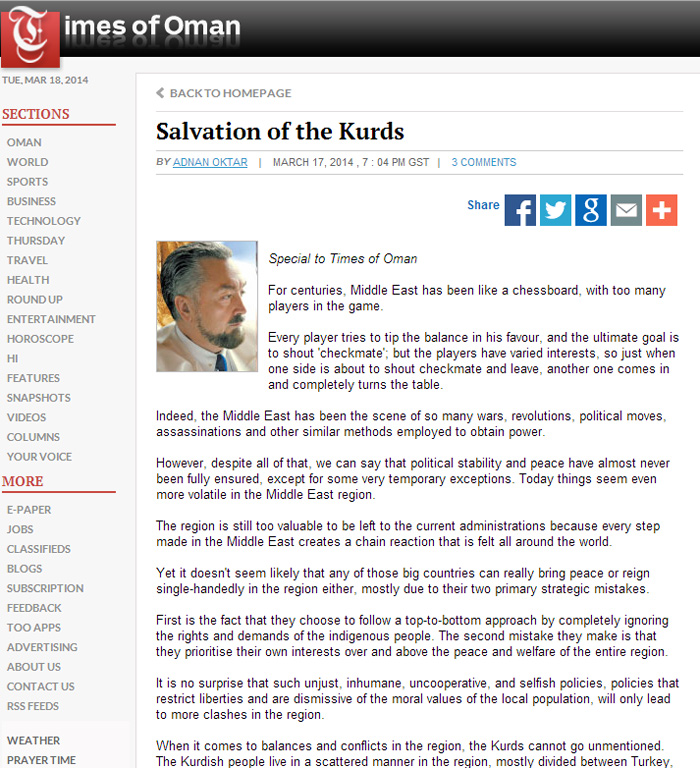

 For centuries, Middle East has been like a chessboard, with too many players in the game.
For centuries, Middle East has been like a chessboard, with too many players in the game. Every player tries to tip the balance in his favour, and the ultimate goal is to shout 'checkmate'; but the players have varied interests, so just when one side is about to shout checkmate and leave, another one comes in and completely turns the table.
Indeed, the Middle East has been the scene of so many wars, revolutions, political moves, assassinations and other similar methods employed to obtain power.
However, despite all of that, we can say that political stability and peace have almost never been fully ensured, except for some very temporary exceptions. Today things seem even more volatile in the Middle East region.
The region is still too valuable to be left to the current administrations because every step made in the Middle East creates a chain reaction that is felt all around the world.
Yet it doesn't seem likely that any of those big countries can really bring peace or reign single-handedly in the region either, mostly due to their two primary strategic mistakes.
First is the fact that they choose to follow a top-to-bottom approach by completely ignoring the rights and demands of the indigenous people. The second mistake they make is that they prioritise their own interests over and above the peace and welfare of the entire region.
It is no surprise that such unjust, inhumane, uncooperative, and selfish policies, policies that restrict liberties and are dismissive of the moral values of the local population, will only lead to more clashes in the region.
When it comes to balances and conflicts in the region, the Kurds cannot go unmentioned. The Kurdish people live in a scattered manner in the region, mostly divided between Turkey, Iran, Iraq, Syria and a few in Israel.
Throughout history, both regional players and other countries have sought to use Kurdish people for their plans.
The fact that they are scattered, that they are left alone and without help draws the attention of those countries with hidden agendas in the region and to this end, they tend to adopt a cunning approach to the Kurdish people and give them only what they deem fit, rather than what the Kurdish people actually need.
Today, some of the Kurdish people have completely adapted to the societies in which they live and therefore see themselves as parts of that societies. However some Kurdish people, partly because of the Stalinist ideology they are following, and partly because of the pains they suffered in the past, wish to have an independent country.
Playing into this dream of some Kurdish people in the region to found an independent and Stalinist state, some circles didn't refrain from making promises to them, yet the situation today makes it clear that none of those promises were kept.
It is clear to anyone that a Stalinist, independent Kurdish country in the region could lead to a catastrophe.
Organisations such as the PKK, PJAK and the PYD use only 'terrorism' to achieve their goals; therefore, if a Stalinist view reigns in this Kurdish state that some wish to build, the Middle East will be dragged into an even worse kind of mayhem.
Then, is it possible that the ordeal of the Kurdish people will come to an end? Yes, it is possible; however, to do that, the methods used to bring order to the Middle East have to change. Peace and brotherhood are surely familiar terms to all of us.
After all, the countries that intervened in the Middle East did so by saying that they had the best intentions at heart and only tried to bring peace and brotherhood.
Did they achieve this? Obviously not, and due to their mistaken strategies, the blood and pain have not come to an end in the Middle East.
Adnan Oktar's article on Times of Oman:


